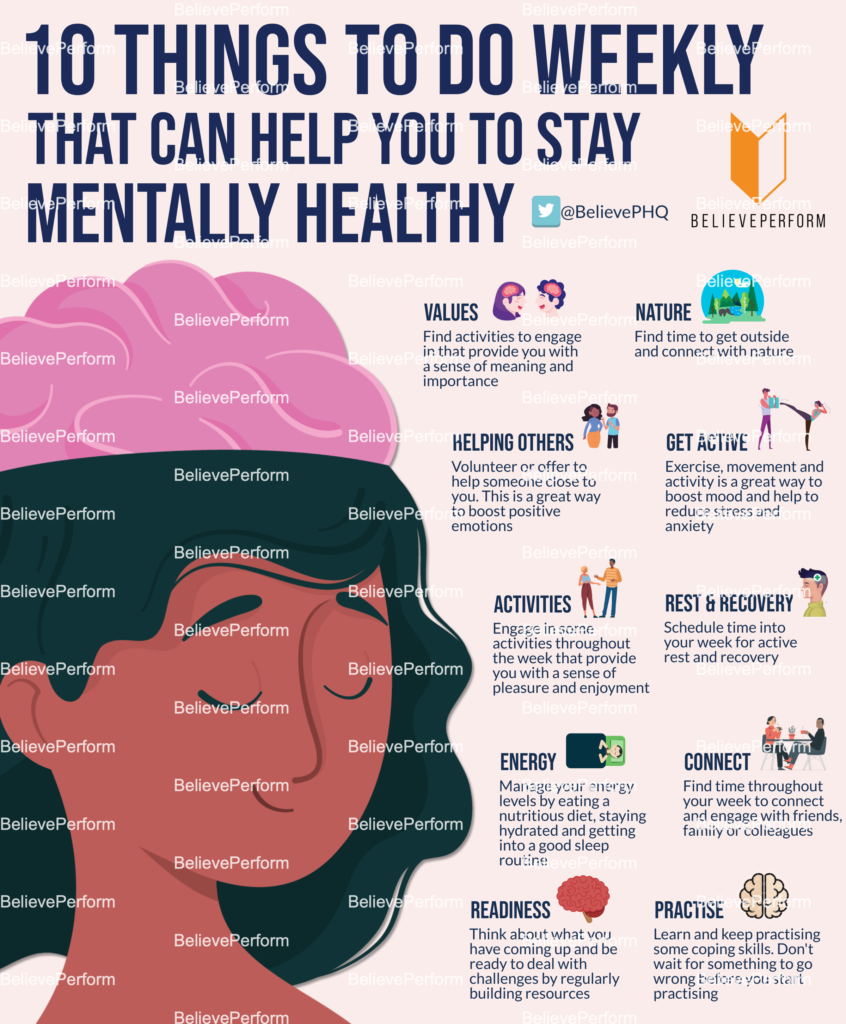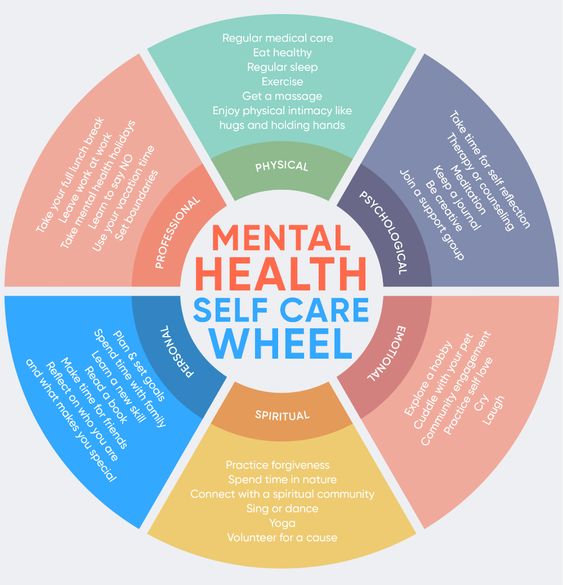“Staying Mentally Healthy: A Comprehensive Guide to Well-Being
With excitement, let’s uncover the fascinating topic of Staying Mentally Healthy: A Comprehensive Guide to Well-Being. Let’s weave together engaging insights and offer a fresh perspective to our readers.
About Video Staying Mentally Healthy: A Comprehensive Guide to Well-Being
Staying Mentally Healthy: A Comprehensive Guide to Well-Being

In today’s fast-paced and demanding world, mental health is no longer a luxury but a fundamental necessity. Maintaining good mental health is crucial for overall well-being, influencing how we think, feel, and behave. It affects our ability to handle stress, relate to others, and make healthy choices. This article explores practical strategies and insights to help you stay mentally healthy and cultivate a resilient mindset.
Understanding Mental Health
Mental health encompasses our emotional, psychological, and social well-being. It affects how we perceive ourselves, others, and the world around us. Good mental health isn’t merely the absence of mental illness; it’s a state of well-being where individuals can realize their abilities, cope with normal stresses of life, work productively, and contribute to their communities.
Why Mental Health Matters
- Physical Health Connection: Mental and physical health are intrinsically linked. Poor mental health can lead to physical health problems, such as heart disease, high blood pressure, and weakened immune systems.
- Productivity and Performance: Mental well-being enhances focus, creativity, and problem-solving skills, leading to improved performance in work, studies, and daily tasks.
- Relationships and Social Connections: Good mental health fosters healthy relationships, empathy, and effective communication, strengthening social bonds and support systems.
- Resilience and Coping: Mental well-being equips individuals with the resilience to navigate challenges, adapt to change, and bounce back from adversity.
- Overall Quality of Life: A positive mental state contributes to a greater sense of happiness, fulfillment, and purpose in life.

Strategies for Staying Mentally Healthy
1. Prioritize Self-Care
Self-care involves taking deliberate actions to nurture your physical, emotional, and mental well-being. It’s about recognizing your needs and making time for activities that rejuvenate and replenish you.
- Physical Health:
- Balanced Diet: Nourish your body with a variety of fruits, vegetables, lean proteins, and whole grains. Limit processed foods, sugary drinks, and excessive caffeine or alcohol.
- Regular Exercise: Engage in physical activity that you enjoy, whether it’s walking, running, swimming, dancing, or yoga. Aim for at least 30 minutes of moderate-intensity exercise most days of the week.
- Adequate Sleep: Prioritize getting 7-9 hours of quality sleep each night. Establish a consistent sleep schedule, create a relaxing bedtime routine, and optimize your sleep environment.

- Emotional Health:
- Mindfulness and Meditation: Practice mindfulness techniques, such as deep breathing, meditation, or yoga, to cultivate awareness of your thoughts and emotions without judgment.
- Journaling: Write down your thoughts, feelings, and experiences in a journal to process emotions, gain insights, and track your progress.
- Creative Expression: Engage in creative activities like painting, drawing, writing, playing music, or crafting to express yourself and relieve stress.
- Social Health:
- Connect with Loved Ones: Spend quality time with family and friends who support and uplift you. Engage in meaningful conversations, share experiences, and offer each other encouragement.
- Join Social Groups: Participate in activities or groups that align with your interests, such as book clubs, sports teams, volunteer organizations, or hobby groups.
- Set Boundaries: Learn to say no to requests or commitments that overwhelm you or compromise your well-being.

2. Cultivate Positive Relationships
Healthy relationships are essential for mental well-being. They provide emotional support, reduce stress, and enhance feelings of belonging and connection.
- Communicate Openly: Express your thoughts and feelings honestly and respectfully. Practice active listening and empathy to understand others’ perspectives.
- Set Boundaries: Establish clear boundaries in your relationships to protect your time, energy, and emotional well-being.
- Resolve Conflicts Constructively: Address conflicts in a calm and respectful manner. Focus on finding solutions that meet the needs of all parties involved.
- Show Appreciation: Express gratitude and appreciation for the people in your life. Acknowledge their contributions and celebrate their successes.
- Seek Support: Don’t hesitate to reach out to friends, family, or a therapist when you need support or guidance.
3. Manage Stress Effectively
Stress is a natural part of life, but chronic stress can negatively impact mental and physical health. Developing effective stress management techniques is crucial for maintaining well-being.
- Identify Stressors: Identify the sources of stress in your life, whether they are related to work, relationships, finances, or other factors.
- Practice Relaxation Techniques: Incorporate relaxation techniques into your daily routine, such as deep breathing, progressive muscle relaxation, or guided imagery.
- Time Management: Improve your time management skills by prioritizing tasks, setting realistic goals, and breaking down large projects into smaller, manageable steps.
- Delegate Responsibilities: Delegate tasks or responsibilities to others when possible to reduce your workload and free up time for self-care.
- Take Breaks: Schedule regular breaks throughout the day to rest, recharge, and engage in activities that you enjoy.
4. Challenge Negative Thinking
Negative thoughts can contribute to feelings of anxiety, depression, and low self-esteem. Learning to challenge and reframe negative thoughts can improve your mood and outlook.
- Identify Negative Thoughts: Pay attention to your thoughts and identify patterns of negative thinking, such as catastrophizing, overgeneralizing, or blaming.
- Question Your Thoughts: Ask yourself whether your negative thoughts are based on facts or assumptions. Challenge the evidence that supports your thoughts and consider alternative perspectives.
- Reframe Negative Thoughts: Reframe negative thoughts into more positive or realistic ones. For example, instead of thinking "I’m going to fail," try thinking "I may not succeed perfectly, but I can learn from the experience."
- Practice Gratitude: Focus on the positive aspects of your life and express gratitude for the things you appreciate. Keep a gratitude journal or make a habit of listing things you’re grateful for each day.
- Seek Professional Help: If you struggle to challenge negative thoughts on your own, consider seeking help from a therapist or counselor.
5. Set Meaningful Goals
Having goals and aspirations can give you a sense of purpose and direction in life. Setting meaningful goals that align with your values can boost your motivation and self-esteem.
- Identify Your Values: Determine what is most important to you in life, such as family, career, creativity, or personal growth.
- Set SMART Goals: Set goals that are Specific, Measurable, Achievable, Relevant, and Time-bound.
- Break Down Goals: Break down large goals into smaller, more manageable steps. This makes them less daunting and easier to achieve.
- Track Your Progress: Monitor your progress toward your goals and celebrate your achievements along the way.
- Adjust Your Goals: Be flexible and willing to adjust your goals as needed based on changing circumstances or priorities.
6. Practice Mindfulness
Mindfulness involves paying attention to the present moment without judgment. It can help you become more aware of your thoughts, feelings, and sensations, and reduce stress and anxiety.
- Mindful Breathing: Focus on your breath and notice the sensation of each inhale and exhale.
- Mindful Meditation: Sit or lie down in a comfortable position and focus on your breath, a mantra, or a visual image.
- Mindful Walking: Pay attention to the sensations of your feet touching the ground as you walk.
- Mindful Eating: Savor each bite of food and notice the flavors, textures, and aromas.
- Mindful Activities: Engage in everyday activities, such as washing dishes or brushing your teeth, with full attention and awareness.
7. Seek Professional Help When Needed
It’s important to recognize that seeking professional help for mental health concerns is a sign of strength, not weakness. If you are struggling with persistent feelings of sadness, anxiety, or other mental health symptoms, don’t hesitate to reach out to a therapist, counselor, or psychiatrist.
- Therapy: Therapy can provide you with a safe and supportive space to explore your thoughts, feelings, and behaviors. A therapist can help you develop coping skills, challenge negative thinking, and improve your relationships.
- Medication: Medication can be an effective treatment for certain mental health conditions, such as depression, anxiety, and bipolar disorder. A psychiatrist can evaluate your symptoms and prescribe medication if appropriate.
- Support Groups: Support groups can provide you with a sense of community and connection with others who are experiencing similar challenges.
8. Limit Social Media Use
While social media can be a great way to connect with friends and family, it can also have a negative impact on your mental health. Excessive social media use has been linked to increased feelings of anxiety, depression, and social comparison.
- Set Time Limits: Set limits on how much time you spend on social media each day.
- Unfollow Accounts: Unfollow accounts that make you feel bad about yourself or that promote unrealistic standards of beauty or success.
- Be Mindful of Content: Be mindful of the content you consume on social media and choose to follow accounts that are positive and uplifting.
- Take Breaks: Take regular breaks from social media to disconnect and engage in other activities.
Conclusion
Staying mentally healthy is an ongoing process that requires commitment and self-awareness. By prioritizing self-care, cultivating positive relationships, managing stress effectively, challenging negative thinking, setting meaningful goals, practicing mindfulness, and seeking professional help when needed, you can cultivate a resilient mindset and enhance your overall well-being. Remember that mental health is just as important as physical health, and taking care of your mind is essential for living a happy, fulfilling life.

